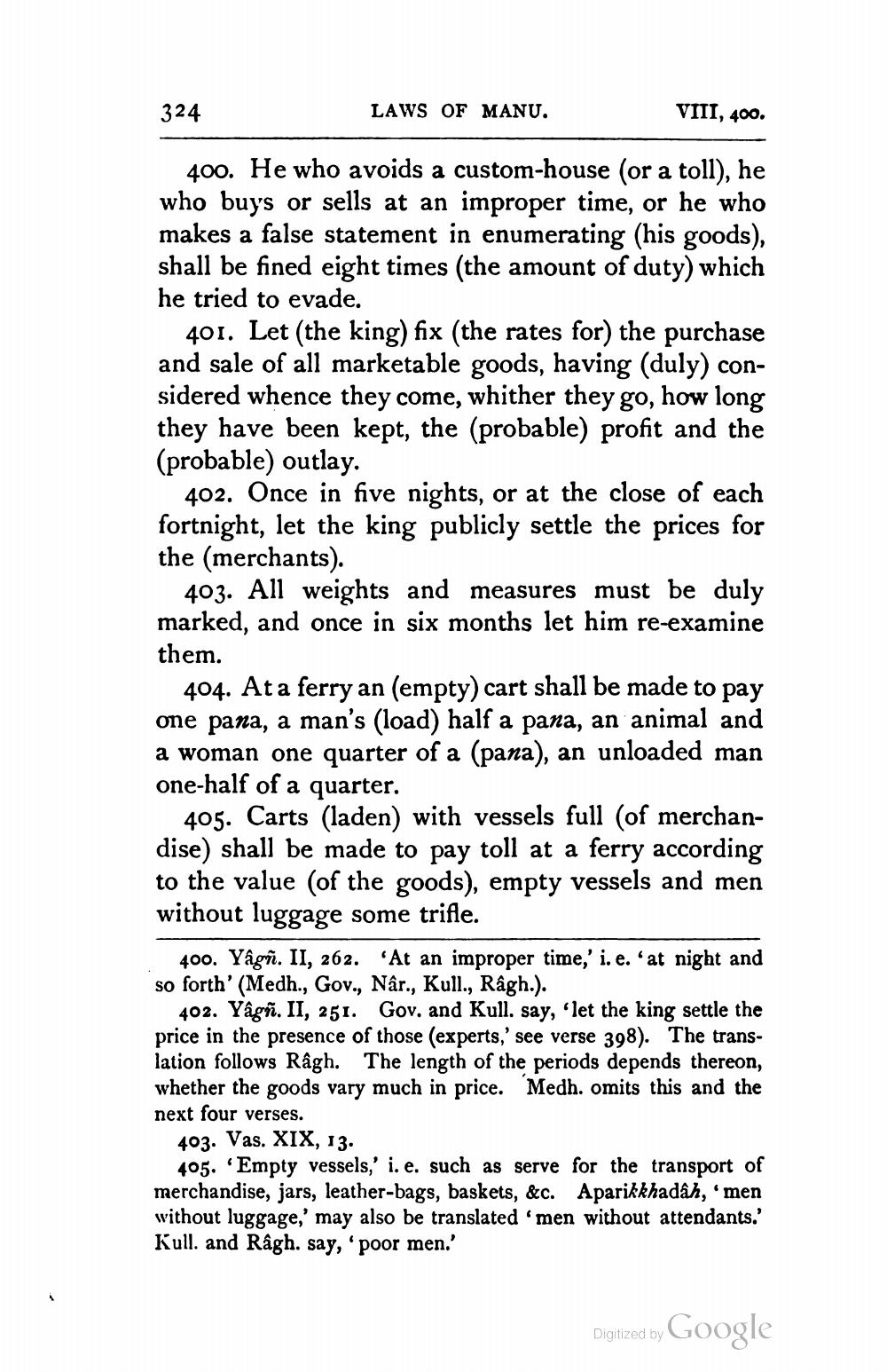________________
324
LAWS OF MANU.
VIII, 400.
400. He who avoids a custom-house (or a toll), he who buys or sells at an improper time, or he who makes a false statement in enumerating (his goods), shall be fined eight times (the amount of duty) which he tried to evade.
401. Let (the king) fix (the rates for) the purchase and sale of all marketable goods, having (duly) considered whence they come, whither they go, how long they have been kept, the (probable) profit and the (probable) outlay.
402. Once in five nights, or at the close of each fortnight, let the king publicly settle the prices for the (merchants).
403. All weights and measures must be duly marked, and once in six months let him re-examine them.
404. At a ferry an (empty) cart shall be made to pay one pana, a man's (load) half a pana, an animal and a woman one quarter of a (pana), an unloaded man one-half of a quarter.
405. Carts (laden) with vessels full (of merchandise) shall be made to pay toll at a ferry according to the value (of the goods), empty vessels and men without luggage some trifle.
400. Yâgn. II, 262. 'At an improper time,' i. e. ' at night and so forth' (Medh., Gov., Nâr., Kull., Râgh.). 402. Yâgn. II, 251. Gov. and Kull. say, 'let the king settle the price in the presence of those (experts,' see verse 398). The translation follows Râgh. The length of the periods depends thereon, whether the goods vary much in price. Medh. omits this and the next four verses.
403. Vas. XIX, 13.
405. 'Empty vessels,' i. e. such as serve for the transport of merchandise, jars, leather-bags, baskets, &c. Aparikkhadâh, 'men without luggage,' may also be translated 'men without attendants.' Kull. and Râgh. say, 'poor men.'
Digitized by Google




